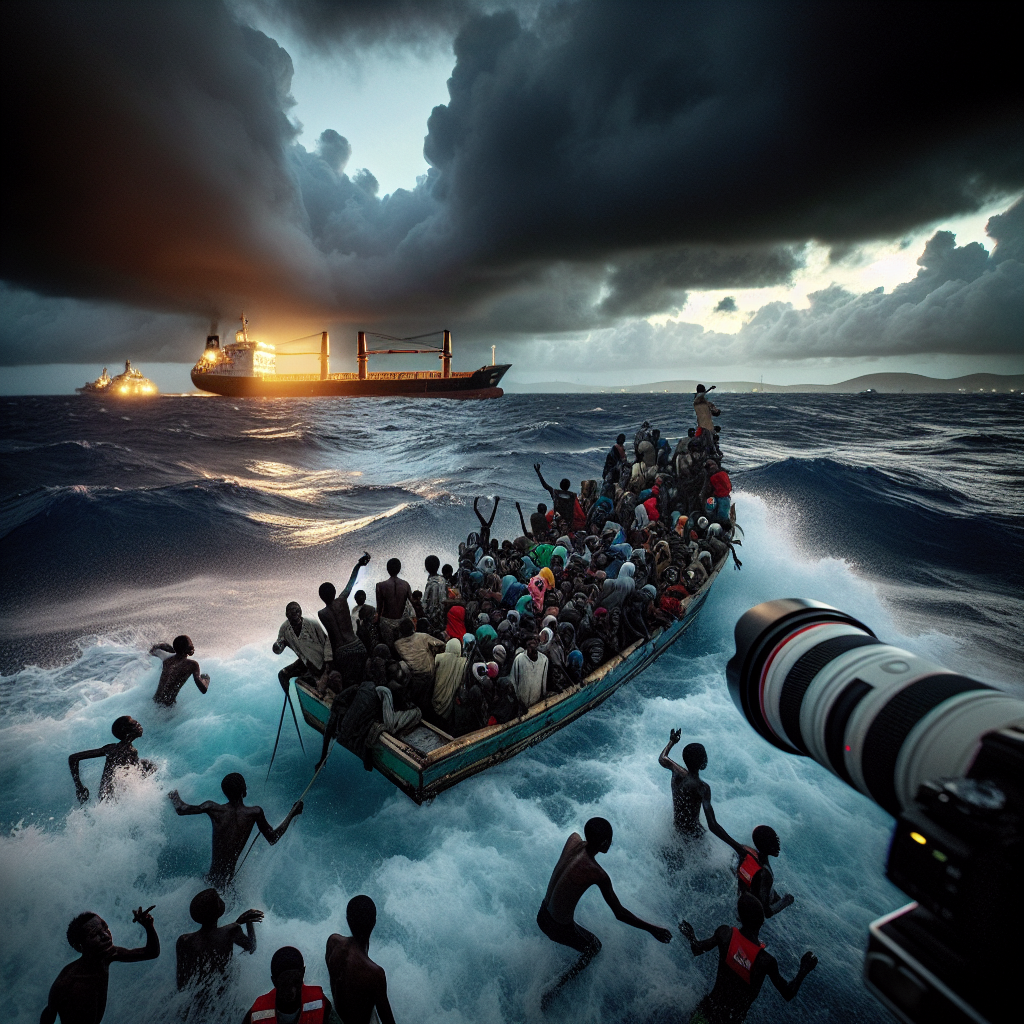Listen up, the truth’s about to drop—and I don’t sugarcoat.
The waters off Djibouti just bore witness to yet another bloody page in the smugglers’ playbook, and guess who’s scrambling on deck now? The United Nations. Yes, the global referee that holds endless conferences and delivers humanitarian lectures like bedtime stories has finally decided to throw a lifeline—eight bodies too late, with 22 still missing and fate writing epilogues in saltwater.
According to the International Organization for Migration, roughly 150 people—read: desperate, hopeful human beings—were forced off a boat by smugglers, tossed into the sea like unwanted cargo. These aren’t smugglers with eye patches and parrots, folks. These are 21st-century executioners in dinghies, thriving in the blind spots of the international gaze, cashing in on conflict, climate, and poverty.
Here’s the part where you’re supposed to clutch your pearls—but I’m not here for your performative grief, world leaders. I’m here to ask the uncomfortable question: How the hell is this still happening?
Let’s break it down, shall we?
Djibouti, strategically perched at the mouth of the Red Sea, is less a country these days and more a crossroads of desperation. Yemen’s still on fire, the Horn of Africa is still bleeding from climate-induced famine and bad governance, and Europe? Europe’s busy polishing its border fences while outsourcing migration management to militias and mercenaries. It’s a game of geopolitical hot potato, with human lives as the flaming tuber.
Now the UN steps in with a “rescue operation.” Better late than never, right? Wrong.
This wasn’t a surprise. It’s not a tragedy born out of chaos—it’s a statistical inevitability wrapped in bureaucratic apathy. The smugglers know it. The migrants know it. And I suspect the suits in Geneva know it too. But knowing isn’t fixing, and acknowledging isn’t action.
Let me toss a grenade into the moral high ground: What if we treated this predator economy—the migrant smuggling industry—as what it actually is? Not a law enforcement issue, but a consequence of deliberately hollow refugee systems, a refusal to open legal pathways, and the global addiction to political buck-passing.
And please, spare me the diplomatic niceties. If Europe wants to tighten its borders, fine. But don’t play dumb when you create a market for traffickers more lucrative than oil. If Gulf states want the labor but not the responsibility, don’t act shocked when bodies wash up near your trade routes. This problem isn’t swimming across oceans; it’s being pushed—by global negligence, by policy cowardice, and by a system so broken it should be wearing a neck brace.
It’s not just eight lives. It never is. It’s thousands who’ve perished in silence, anonymized under the convenient term “irregular migrants.” It’s families paying ransoms, men selling kidneys, women forced into nightmares that defy narration.
And here’s the kicker—this is an election year across half the globe. Politicians from Washington to Warsaw are dusting off their “tough on migration” speeches while peddling nationalism dressed as security. Every drowned migrant is another applause line for a hardliner’s rally.
You want to fix this? Then start at the root. Invest not just in rescue—but in justice. Open legal corridors. Punish traffickers like terrorists. And maybe—just maybe—recognize that human beings will always move, no matter how many walls you build.
Until then, keep your outrage. I’ll keep my voice.
The game’s on, and I play to win.
– Mr. 47







